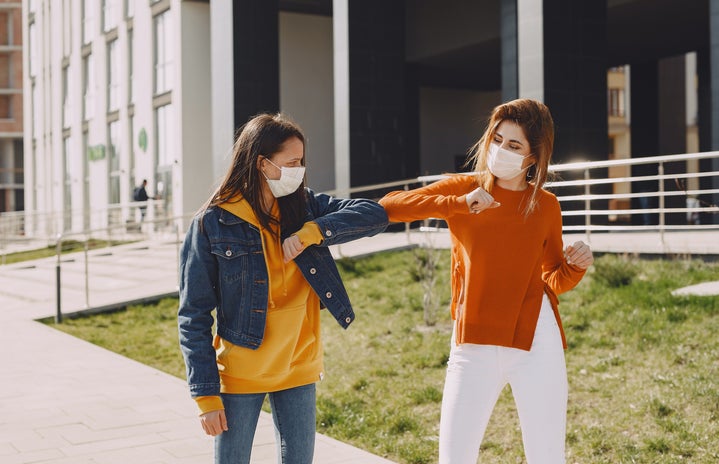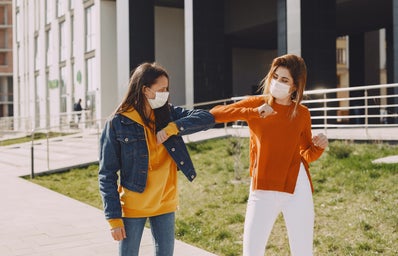Ever since the declaration of the global pandemic, the entire world has taken a drastic turn into an uncertain future. It is hard to find something positive when the entire world seems to be drenched in negativity. COVID-19 has not only impacted lives physically, but it has also done so mentally. Mental health has affected different people in different ways. For most, their career and financial stability has been called into question. However, new studies also show that mental health issues have been increasingly affecting the youth as well.
To give you the stats, an online survey was given to about 359 children and 3254 adolescents aged 7-18 in China during the pandemic (Wagner, 2020). The survey included scales for depression, anxiety, and coping styles. The results of the study showed that 22.3% of youth had scores which related to clinical depressive symptoms, which is higher than the estimated youth depression rate in China at 13.2%. Since the study also measured coping styles, it was found that a problem-focused approach led to less clinical depressive symptoms whereas an emotional approach led to more depressive symptoms. What’s more, studies also show that these effects on mental health won’t vanish easily. A study from the NIH assessed the impacts of social isolation and quarantine on the mental health of youth (Loades et al, 2020). It found that social isolation and loneliness would increase the risk of depression up to 9 years later. So, even after quarantine ends, children and adolescents would still struggle with symptoms of anxiety and depression.
There have also been developments in the ways of measuring the specific reasons as to why many people are experiencing mental health problems. Dr. Asmundson and his colleagues from the University of Regina created COVID Stress Scales, which measured the five main features of COVID-related stress: fear of danger and contamination, fear of adverse socio-economic consequences, checking and reassurance seeking, xenophobia (discrimination against foreigners) and traumatic stress symptoms (Gordon J. G. Asmundson,Professor of Psychology, 2020). Using these scales, they came up with the term COVID stress syndrome, which is mostly caused by the fear of contracting the disease.
The ongoing pandemic has especially affected college students because of the uncertainty of their career and life in the future. Kelly Davis, director of peer advocacy supports and services for Mental Health America, says that she expects a spike in the amount of college students seeking mental health support during the pandemic (Anderson, 2020). She states that without the pandemic, there is normally a dip in mental health around October. However, with this new disease, those numbers could rise to the point where counseling centers are not prepared for the load of students calling for help.
During these testing times, it is easy to give into the outside noise. However, one thing that I have learned from this pandemic is the importance of gratitude. As human beings, most of us are too focused on achieving more and getting better without noticing how lucky we are to have resources that help us achieve our goals. Some of the things that I have been doing to take care of myself is trying to get better at my hobbies, such as music and dance. When I am feeling overwhelmed, I tend to listen to relaxing music such as sounds from nature. When I need to concentrate on school, I play lo-fi music in the background. When I am feeling a little low, I listen to some powerful and inspirational beats from Kpop and hip-hop groups such as Stray Kids and K/DA (I highly recommend checking out these groups: they are beyond awesome). Each day, I write down three random things that I am grateful for, which really gets my mood up to power through the day.
In conclusion, mental health has been one of the most salient issues that have affected lives during the pandemic. It has especially taken a toll on children and adolescents. Many people under this category are college students, who show mental health symptoms because of uncertainty in their careers and their future. Amidst the negativity, the importance of recognizing what one has is one of the key ways to keep a positive mindset during the pandemic. We are living through a difficult time in human history, but valuing ourselves and the things we have around us is one of the best ways to survive during these tough times.
Works Cited
Anderson, G. (2020, September 11). Students in great need of mental health support during pandemic. Retrieved November 02, 2020, from https://www.insidehighered.com/news/2020/09/11/students-great-need-menta…
Gordon J. G. Asmundson Professor of Psychology. (2020, October 28). COVID stress syndrome: 5 ways the pandemic is affecting mental health. Retrieved November 02, 2020, from https://theconversation.com/covid-stress-syndrome-5-ways-the-pandemic-is…
Loades, M., Chatburn, E., Higson-Sweeney, N., Reynolds, S., Shafran, R., Brigden, A., . . . Crawley, E. (2020, November). Rapid Systematic Review: The Impact of Social Isolation and Loneliness on the Mental Health of Children and Adolescents in the Context of COVID-19. Retrieved November 02, 2020, from https://www.ncbi.nlm.nih.gov/pmc/articles/PMC7267797/
Wagner, K. (2020, October 07). New Findings About Children’s Mental Health During COVID-19. Retrieved November 02, 2020, from https://www.psychiatrictimes.com/view/new-findings-children-mental-healt…


